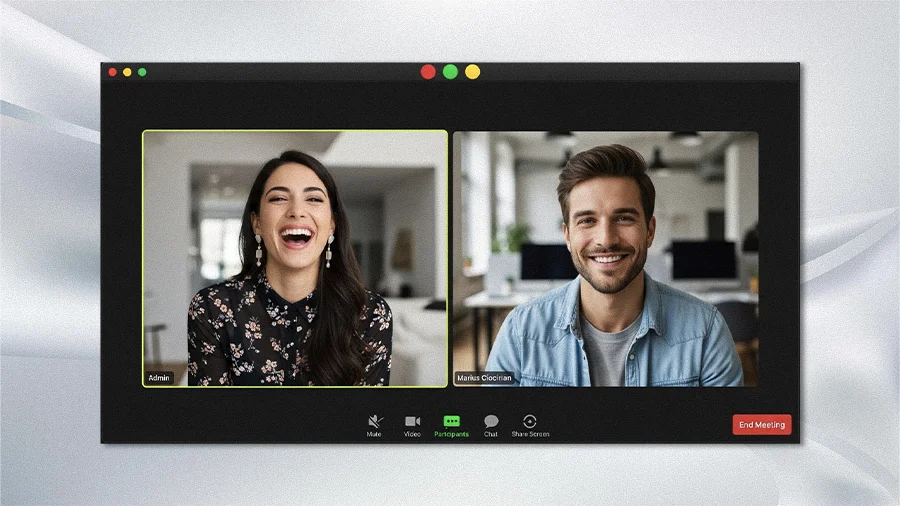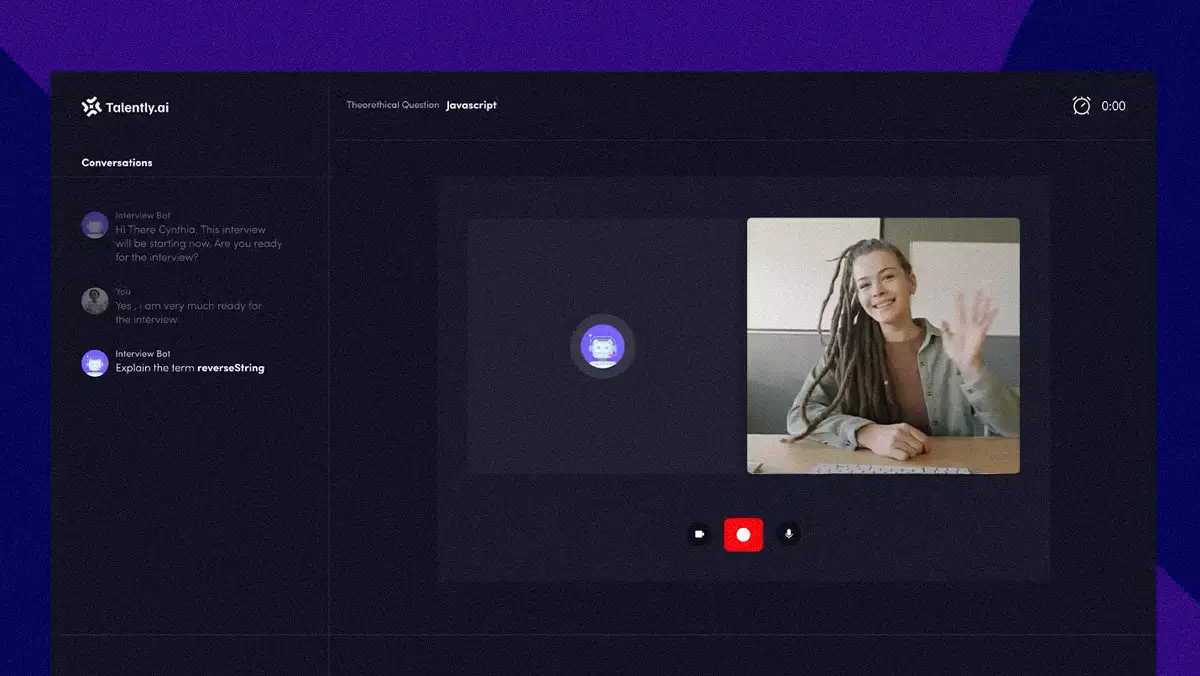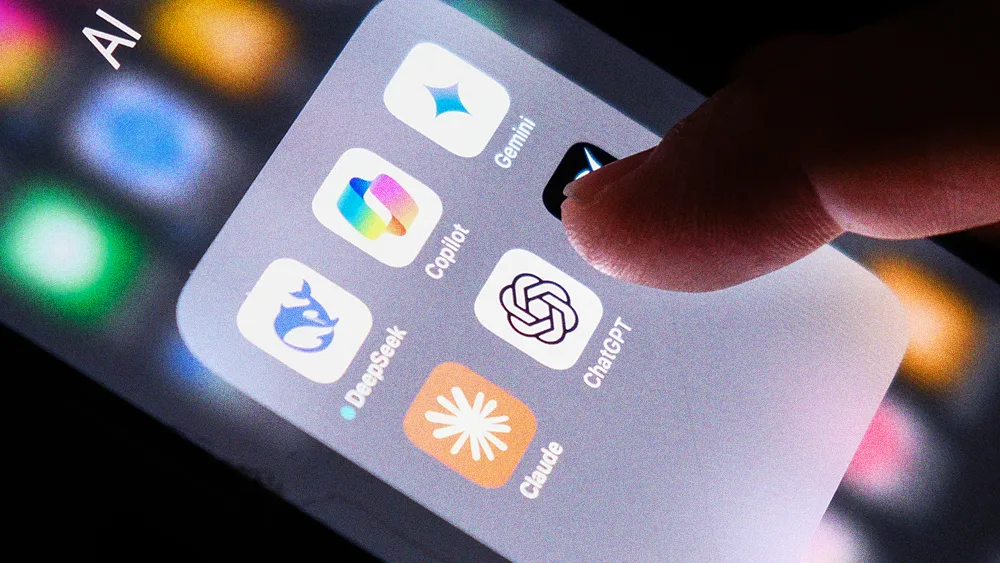No candidate left behind amid record applicant volume thanks to conversational AI

Key Points
High-volume hiring has created a system where most applicants are ignored, pushing negative candidate sentiment to an all-time high.
Prem Kumar, CEO of Humanly.io, argues the real choice for applicants is not between a human and AI, but between an AI conversation and being ignored completely.
Conversational AI provides a fair, two-way screening for every candidate, can identify transferable skills, and reduces human bias.
This approach allows recruiters to shift their focus from high-volume screening to more strategic, high-value work.
It's not so much the difference between talking to a human versus AI; it's really the difference between either being ignored or waiting a week and being able to get into the process.

Prem Kumar
CEO and Co-Founder
Humanly.io
Hiring is collapsing under record application volumes. One posting can draw thousands of resumes, leaving the vast majority overlooked and frustration soaring. Keyword-matching only deepens the problem, reducing people to checkboxes and filtering out talent with unconventional backgrounds.
Smarter, conversational AI offers the way forward by flipping the equation: instead of forcing candidates to compete for a sliver of recruiter attention, it ensures every applicant is given a voice. By engaging each person in a substantive exchange, AI turns what was once a black hole into an opportunity—one where transferable skills can be recognized, questions can be answered, and potential isn’t lost in the noise.
We spoke with Prem Kumar, the CEO and Co-Founder of AI recruiting solution Humanly.io. With a background in HR Products at Microsoft and a string of accolades including Forbes Next 1000 and GeekWire’s Startup CEO of the Year, Kumar is redefining the relationship between automation and talent acquisition. He argued that the debate over AI in hiring is missing the point.
AI vs. being ignored: For candidates, the real choice isn’t human versus machine; it’s engagement versus silence. “It’s not so much the difference between talking to a human versus AI; it’s really the difference between either being ignored or waiting a week and being able to get into the process,” Kumar stated.
By ensuring every applicant has an immediate, substantive interaction, conversational AI transforms the black hole of hiring into an entry point that values attention as much as evaluation. Humanly’s AI interviewers are designed to conduct an initial, substantive conversation with every single applicant, ensuring no one is overlooked.
The platform also flips the traditional interview dynamic on its head by empowering candidates to screen the company simultaneously. The two-way exchange allows applicants to get immediate answers to their own critical questions, leading to a better-informed candidate pool and less drop-off later in the process.
The two-way street: “Instead of just sending in your resume and waiting, you can have a two-way conversation and ask whatever you want—what’s the culture, the pay, the schedule?” Kumar said. “When candidates get their questions answered, there’s less drop-off later in the process.”
Beyond simply ensuring every applicant gets heard, conversational AI can adapt to what each company values most and even change how candidates themselves engage in the process.
A customizable evaluation: Companies aren’t limited to one-size-fits-all screening. “AI-driven interviews can be customized to certain criteria based on the role and industry,” Kumar explained. “It can be anything from a skill set match to a culture add to their communication and collaboration skills.”
The confidence to ask questions: While some candidates may be wary of speaking with an AI, Kumar’s research revealed an unexpected benefit. Freed from the fear of judgment, candidates often open up more. “We found that candidates ask on average three questions to an AI versus two to a human,” he noted. “Our research shows they are sometimes more comfortable and less afraid of looking like they don’t know the answer when it’s not a human hiring manager.”
Technology in hiring can serve as a powerful tool for mitigating the unconscious biases that plague human interviews. By standardizing early conversations, AI creates a more consistent and equitable experience for every candidate.
Removing human bias: “We looked at about 300,000 Zoom calls and found junior female candidates were getting eight minutes less to speak in interviews for many roles,” Kumar revealed. “There’s also proximity bias. If a recruiter is interviewing a candidate in their own city, they will spend about a minute and 20 seconds longer on rapport-building and talking about things they have in common, which means by the time they ask the questions, they already have a higher sentiment.”
Crucially, this process is built on a foundation of radical transparency. Kumar stressed it is essential for candidates to know they are interacting with AI, not as a disclaimer buried in a privacy policy, but as a core feature of the experience.
Full disclosure: “It’s not enough to just bury disclosure in some long-form text or a privacy policy. We make it clear up front,” he said. “In the email a candidate receives, it states not only that it is AI, but explains why it’s better for them in this situation. I consider it a failure if anyone ever thought they were actually talking to a human.”
Ultimately, Kumar explained that his vision wasn’t about replacing recruiters but evolving their role. By automating the high-volume, top-of-funnel screening, AI frees up human recruiters to focus on higher-value work and strategic decision-making. “AI isn’t replacing recruiters, but the question is what high-value tasks they take on with the time savings,” Kumar said. “To us, that’s full-scale recruiting for non-entry-level jobs, and orchestrating when AI should and shouldn’t come in, because that will be different for every company.”
We found that candidates ask on average three questions to an AI versus two to a human. Our research shows they are sometimes more comfortable and less afraid of looking like they don't know the answer when it's not a human hiring manager.

Prem Kumar
CEO and Co-Founder
Humanly.io
We found that candidates ask on average three questions to an AI versus two to a human. Our research shows they are sometimes more comfortable and less afraid of looking like they don't know the answer when it's not a human hiring manager.

Prem Kumar
CEO and Co-Founder
Humanly.io
Related articles
TL;DR
High-volume hiring has created a system where most applicants are ignored, pushing negative candidate sentiment to an all-time high.
Prem Kumar, CEO of Humanly.io, argues the real choice for applicants is not between a human and AI, but between an AI conversation and being ignored completely.
Conversational AI provides a fair, two-way screening for every candidate, can identify transferable skills, and reduces human bias.
This approach allows recruiters to shift their focus from high-volume screening to more strategic, high-value work.

Prem Kumar
Humanly.io
CEO and Co-Founder

CEO and Co-Founder
Hiring is collapsing under record application volumes. One posting can draw thousands of resumes, leaving the vast majority overlooked and frustration soaring. Keyword-matching only deepens the problem, reducing people to checkboxes and filtering out talent with unconventional backgrounds.
Smarter, conversational AI offers the way forward by flipping the equation: instead of forcing candidates to compete for a sliver of recruiter attention, it ensures every applicant is given a voice. By engaging each person in a substantive exchange, AI turns what was once a black hole into an opportunity—one where transferable skills can be recognized, questions can be answered, and potential isn’t lost in the noise.
We spoke with Prem Kumar, the CEO and Co-Founder of AI recruiting solution Humanly.io. With a background in HR Products at Microsoft and a string of accolades including Forbes Next 1000 and GeekWire’s Startup CEO of the Year, Kumar is redefining the relationship between automation and talent acquisition. He argued that the debate over AI in hiring is missing the point.
AI vs. being ignored: For candidates, the real choice isn’t human versus machine; it’s engagement versus silence. “It’s not so much the difference between talking to a human versus AI; it’s really the difference between either being ignored or waiting a week and being able to get into the process,” Kumar stated.
By ensuring every applicant has an immediate, substantive interaction, conversational AI transforms the black hole of hiring into an entry point that values attention as much as evaluation. Humanly’s AI interviewers are designed to conduct an initial, substantive conversation with every single applicant, ensuring no one is overlooked.
The platform also flips the traditional interview dynamic on its head by empowering candidates to screen the company simultaneously. The two-way exchange allows applicants to get immediate answers to their own critical questions, leading to a better-informed candidate pool and less drop-off later in the process.
The two-way street: “Instead of just sending in your resume and waiting, you can have a two-way conversation and ask whatever you want—what’s the culture, the pay, the schedule?” Kumar said. “When candidates get their questions answered, there’s less drop-off later in the process.”
Beyond simply ensuring every applicant gets heard, conversational AI can adapt to what each company values most and even change how candidates themselves engage in the process.
A customizable evaluation: Companies aren’t limited to one-size-fits-all screening. “AI-driven interviews can be customized to certain criteria based on the role and industry,” Kumar explained. “It can be anything from a skill set match to a culture add to their communication and collaboration skills.”
The confidence to ask questions: While some candidates may be wary of speaking with an AI, Kumar’s research revealed an unexpected benefit. Freed from the fear of judgment, candidates often open up more. “We found that candidates ask on average three questions to an AI versus two to a human,” he noted. “Our research shows they are sometimes more comfortable and less afraid of looking like they don’t know the answer when it’s not a human hiring manager.”

Prem Kumar
Humanly.io
CEO and Co-Founder

CEO and Co-Founder
Technology in hiring can serve as a powerful tool for mitigating the unconscious biases that plague human interviews. By standardizing early conversations, AI creates a more consistent and equitable experience for every candidate.
Removing human bias: “We looked at about 300,000 Zoom calls and found junior female candidates were getting eight minutes less to speak in interviews for many roles,” Kumar revealed. “There’s also proximity bias. If a recruiter is interviewing a candidate in their own city, they will spend about a minute and 20 seconds longer on rapport-building and talking about things they have in common, which means by the time they ask the questions, they already have a higher sentiment.”
Crucially, this process is built on a foundation of radical transparency. Kumar stressed it is essential for candidates to know they are interacting with AI, not as a disclaimer buried in a privacy policy, but as a core feature of the experience.
Full disclosure: “It’s not enough to just bury disclosure in some long-form text or a privacy policy. We make it clear up front,” he said. “In the email a candidate receives, it states not only that it is AI, but explains why it’s better for them in this situation. I consider it a failure if anyone ever thought they were actually talking to a human.”
Ultimately, Kumar explained that his vision wasn’t about replacing recruiters but evolving their role. By automating the high-volume, top-of-funnel screening, AI frees up human recruiters to focus on higher-value work and strategic decision-making. “AI isn’t replacing recruiters, but the question is what high-value tasks they take on with the time savings,” Kumar said. “To us, that’s full-scale recruiting for non-entry-level jobs, and orchestrating when AI should and shouldn’t come in, because that will be different for every company.”




